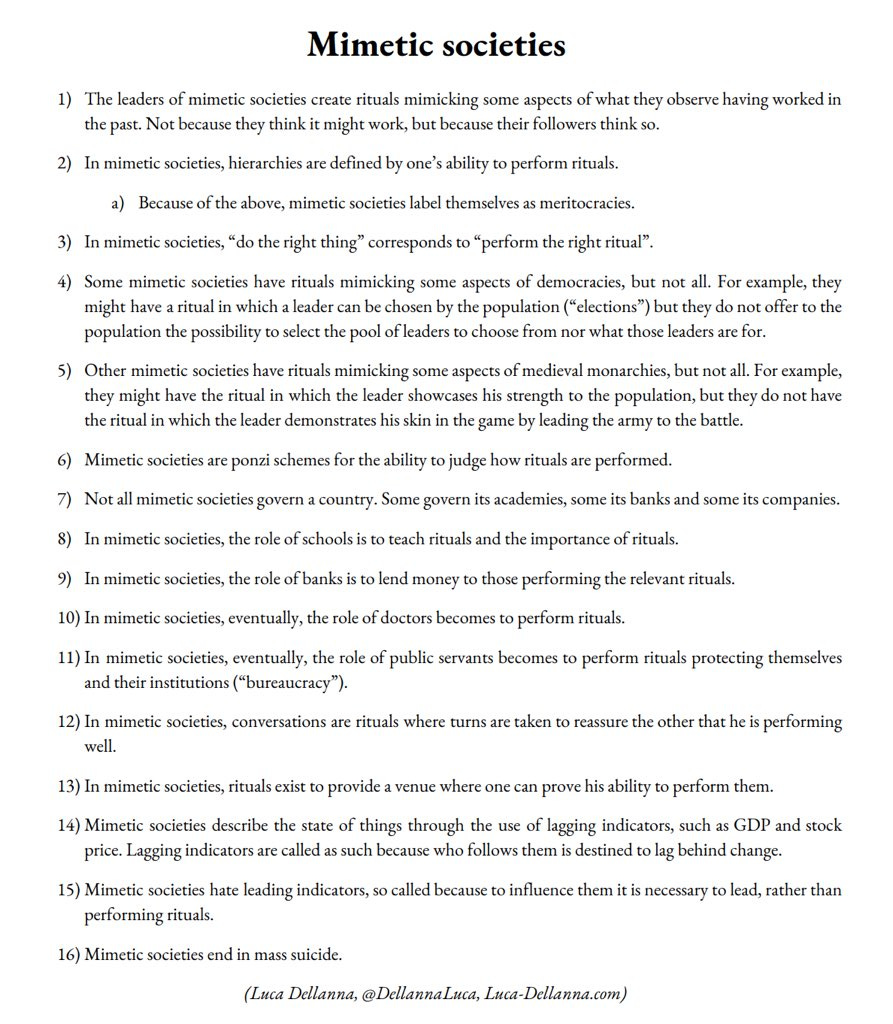In November of 2014, Rolling Stone published a story by the supposed journalist Sabrina Rubin Erdely about an hours-long gang rape in a frat house at the University of Virginia. I read it, and the nervous laughter began before I was halfway through the opening paragraphs. It was a cartoon: nine psychotic frat bros slammed the victim through a glass coffee table and took turns raping her in a pile of broken glass, but her callous amoral Valley Girl friends immediately warned her against calling the police, ‘cause then they wouldn’t be able to party with yummy frat boys anymore. As the story got around, other students — vicious monsters all — sneered at the victim that what was she, some kind of feminist?
Obvious gaps and “wait a minute” moments appeared all over the story; as the journalist Cathy Young would write, the narrative had “more red flags than a Soviet military parade.” On first read, my body reacted to the nonsense of the thing — I pulled away from it like it was road kill, amazed that anyone would publish a pile of crap like this. And then this happened:
Times a thousand: prominent writers and editors poured onto social media to gush about what an extraordinary accomplishment the story was.
Not everyone was that dumb, though, and a few journalists began to pull the story apart, noting the gaps in the reporting and the writing — the unanswered questions, the unasked questions. Erdely never made any attempt, for example, to ask any of the nine gang-rapist frat members — unnamed in the article — about the allegation. An experienced magazine editor, Richard Bradley, went first, blogging within ten days of publication, “Something about this story doesn’t feel right.” A few others joined in; amazingly, two reporters at Slate — which has since become completely useless — went after the story the hardest. Allison Benedikt and Hanna Rosin quickly made it clear that Erdely simply hadn’t done her job: she had typed up the insane rantings of a woman with mental health problems, checked the narrative with absolutely no one, and published them as truth.
The story fell apart, quickly and very very publicly, in an implosion that ended with a defamation settlement. The story has since been vaporized from the Rolling Stone website, and the magazine has gone on to write about the way people in Oklahoma can’t get medical treatment for gunshot wounds, ‘cause so many people are crowding the ERs for horse paste overdoses.
But I’ve never forgotten the moment. A story that immediately struck me as absolute nonsense, a mix of madness and laziness, was widely celebrated. Particularly among well-known and well-paid journalists, prominent figures in national media, a pile of insane horseshit was enthusiastically embraced.
So take a moment and read this story from Alex Berenson, who was attacked for asking a reasonable question. Idiot! Conspiracy theorist!
We’ve seen versions of A Rape on Campus over and over again, with all of the social dynamics that follow along in its wake. Donald Trump paid Russian prostitutes to pee on him in Barack Obama’s hotel bed! Ivermectin is horse paste! And if you don’t believe any of that, Fox News plays in the background while you fuck your cousins in the trailer park, you toothless NASCAR redneck. Jesus, did you even go to college?
Here’s my question: If Sabrina Rubin Erdely’s insane nonsense about UVa had been published in 2021 instead of 2014, would it have fallen apart as quickly? Or would Twitter have pulled tweets that questioned it, and would Facebook have closed accounts for posting doubts, and “fact-checkers” have “debunked” critics, and YouTube have issued strikes to people who posted videos saying they noticed problems with the narrative?
The difference between 2021 and 2014 — a difference that came on hard and fast — is that now we enforce madness. We have media systems and social presumptions to punish people who don’t believe what they’re supposed to believe. Here’s how the writer Luca Dellanna puts it:
This is the problem of our moment, and it’s fatal.
If you don’t believe nonsense, you’re not a high-status person.






For a lower level of social complexity, it sounds like an appropriate synonym for mimetic society would be "cargo cult". And it feels like everybody around me are out there eagerly building the fake airfield towers every day. I want to post of FB something like, "Aren't you sick of wearing masks? Don't you want to go back to normal?" Except I know that all but about two of my five hundred and some FB friends would respond "NEVER! It's not SAFE!"